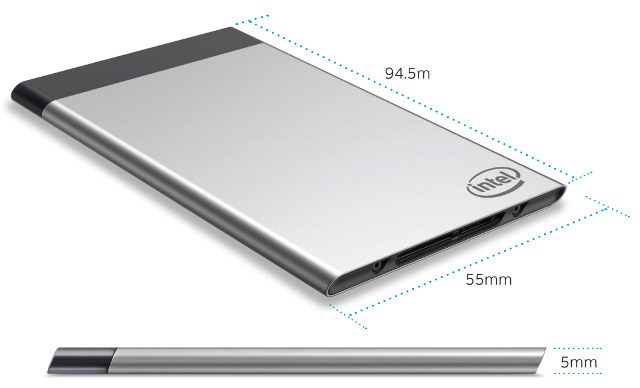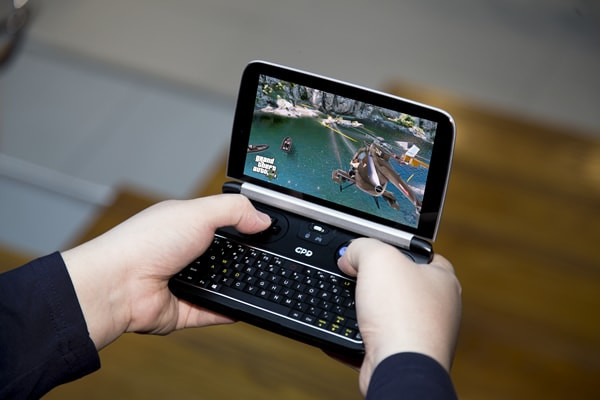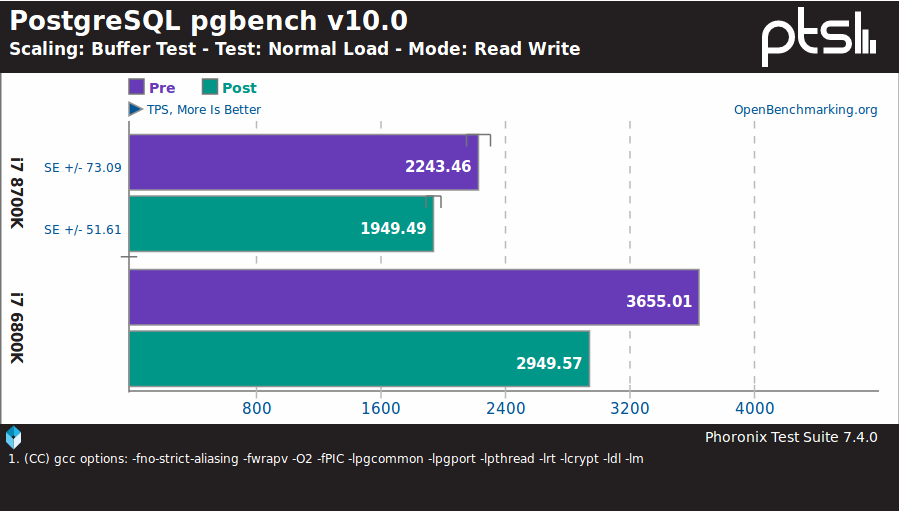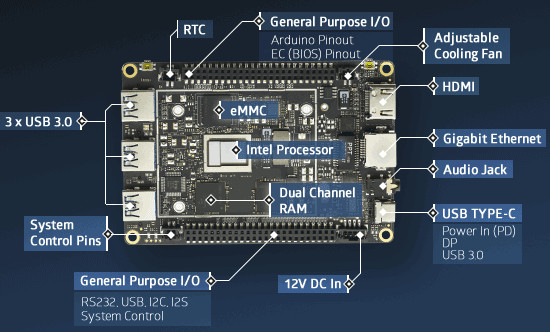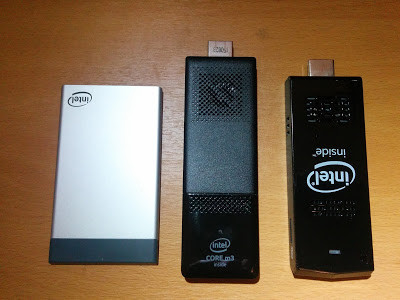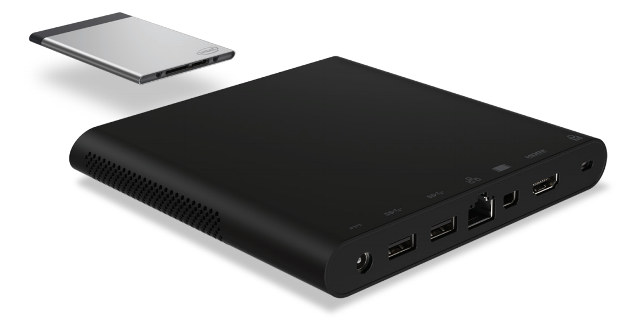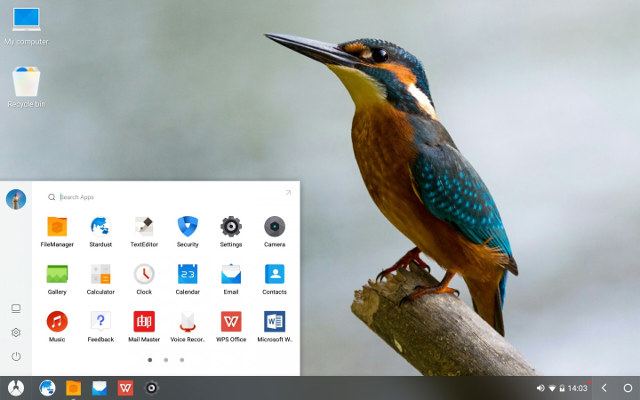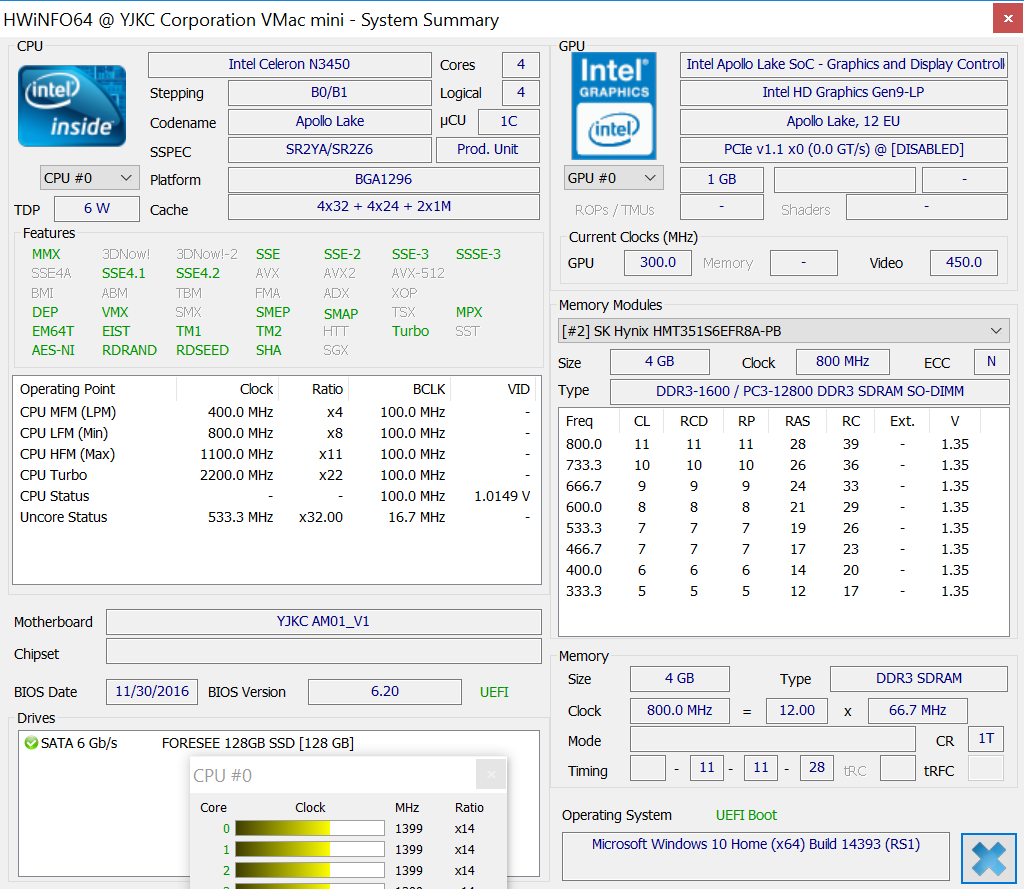The Intel Compute Stick revolutionized the mini PC market through the introduction of x86 based processors making Windows available as an OS option. However, for Intel the biggest target market turned out to be business rather than consumer with digital signage being a key user. As a result Intel have responded with the introduction of the Intel Compute Card. So far they have released four versions of card: and they they differ from compute sticks by no longer being standalone mini PCs but dependent on a dock or host device. The card itself is relatively small with a footprint slightly larger than a standard credit card: and is distinguished by the back being printed with details about the card including the model: The lack of emphasis on the consumer market is also evident in the rather unobtrusive plain packaging: On the end that inserts into the dock or host device […]
GPD WIN 2 is a Handheld Game Console Powered by an Intel Core m3-7Y30 Processor (Crowdfunding)
GPD Win was a Windows 10 portable game console powered by an Intel Cherry Trail processor launched in Indiegogo in early 2016, that managed to raise over $700,000 from nearly 2,300 backers. The company has been teasing an update for a while now, powered by an Intel Core m3-7Y30 processor with 8GB RAM, a 128GB M.2 SSD, and has just launched it on Indiegogo where it has raised close to $600,000 from almost 1,000 backers in the first few hours. GPD WIN 2 external design has gone through some tweaks, but it’s mostly the same as the first model except it’s larger with a 6″ instead of 5.5″ and some buttons have been moved around, but the real differences can be found under the hood: SoC – Intel Core m3-7Y30 dual core quad thread Kaby Lake processor @ 1.00/2.60 GHz (burst frequency) with 24EU Intel HD graphics 615 @ up […]
Intel Hardware Security Bug Fix to Hit Performance on Windows, Linux…
Many security bugs can be fixed without performance penalty , but according to reports Intel processors have a hardware bug – whose details have not been disclosed yet (embargo) – that seems to affect all operating systems including Windows, Linux, Mac OS, etc…, and the fix may lead to significant performance hits for some tasks. We know a bit more thanks to the Kernel Page Table Isolation (KPTI) patch for Linux that enables the fix/workaround with X86_BUG_CPU_INSECURE feature. The fix used to be called KAISER, and there’s an explanation on LWN about “hiding the kernel from user space” about the issue: On contemporary 64-bit systems, the shared address space does not constrain the amount of virtual memory that can be addressed as it used to, but there is another problem that is related to security. An important technique for hardening the system is kernel address-space layout randomization (KASLR), which randomizes […]
LattePanda Alpha/Delta Kaby Lake & Gemini Lake Development Boards Support Windows 10 Pro or Linux (Crowdfunding)
LattePanda development board based on Intel Atom x5-Z8300 “Cherry Trail” processor was launched nearly exactly two years ago on Kickstarter. The board also included an Atmel MCU for Arduino compatibility, and contrary to most development boards on the market, focused on Windows 10 support instead of Linux. The crowdfunding campaign was very successful having raised over 440,000 GBP from around 4,000 backers, and now you an still buy the board and accessories on DF Robot or Amazon. The company is now back with not only one, but two new LattePanda “hackable computers”, namely LattePanda Alpha powered by an Intel Core m3-7Y30 dual core “Kaby Lake” processor, and LattePanda Delta based on Intel Celeron N4100 quad core Gemini Lake processor. This time beside offering Windows 10 Pro, they are also committed to support Linux. Beside processor, memory capacity, and storage options, LattePanda Alpha/Delta boards share most of the same specifications: SoC […]
Intel Compute Card and Dock Hands On, Windows 10 and Ubuntu Benchmarks
We’ve recently seen Intel introduced Dock DK132EPJ for their Compute Cards, and released some pricing info. Ian Morrison (Linuxium) got sent a full kit by Intel with the dock and Compute Card CD1M3128MK powered by a dual core / quad Core m3-7Y30 processor with 4GB RAM, 128GB PCIe SSD, and Intel Wireless-AC 8265 module. You can get the full details in Ian’s post, but I’ll provide a summary of the key points here. While the compute card and dock are thinner than most product, the computer card is quite wider than TV sticks, and the dock larger than an Intel NUC. It also comes with a fan, and cooling works well with maximum CPU temperature under being 70°C. The Compute Cards do not come with any operating system, but you get to the BIOS easily, and install Windows or Linux distributions. Ian’s started with Windows 10 Enterprise Evaluation, and ran […]
Intel Compute Card Dock DK132EPJ Specifications and User Manual Published
Intel unveiled the Compute Card at the very beginning of the this year, without that many details, except it would included a 7th Gen Intel Core, memory, storage and wireless connectivity, and connect compliant dock with a new standard connector featuring USB-C and extra I/Os. Later this year, we learned more details about some Apollo Lake and Kaby Lake Compute Cards including specifications and block diagram. However those cards won’t be of any use without docks, and while NexDock promised a laptop dock for the cards, I have not seen any other announcements, but we now have some info about Intel’s own Compute Card dock that looks like a mini PC as the company released technical specifications and user manuals for DK132EPJ dock, and three Compute Card SKUs. Intel Compute Card Dock DK132EPJ specifications: CPU, Memory, Storage, Wireless – Via slot supporting certified Intel Compute Cards Video Output – HDMI and […]
Phoenix OS 2.1 Android 7.1 based Desktop OS Released for 32-bit and 64-bit x86 Platforms
With Jide’s announcement that they’d stop working on Remix OS for the consumer market, focusing on the enterprise market instead, people who like to use Android as a desktop OS lost an option. Luckily, others have not given up on the concept yet, and Phoenix OS 2.1 based on Android 7.1 with desktop improvements has just been released for computers based on Intel/AMD 32-bit and 64-bit x86 processors. Phoemix OS user interface is a mix between Windows desktop with a desktop, a taskbar, and a start menu, and Android with notifications, and Back/Home/Recent buttons. The OS also supports Android apps, multi-window, window resizing, better multi-tasking, and so on. Changelog for Phoenix OS 2.1: Keyboard mapping updates to version 2.5 with smart casting for Strike of Kings. The bug that window size won’t be saved after restart has been fixed. Enhance the hardware compatibility, including: sound card, network adapter, etc. “Start […]
Voyo VMac Mini mini PC Benchmarks with Intel Celeron N3450 Apollo Lake Processor
Following up yesterday’s post about Voyo VMac Mini mini PC benchmarks with Intel Pentium N4200 processor, I’ve switched to its cheaper little brother powered by Intel Celeron N3450 processor and performed the same benchmarks to compare the performance difference with the Pentium version, as well as older Braswell and Cherry Trail systems. I’ve run HWiNFO64 before running the benchmarks to get more details about computer, and especially the processor. Celeron N3450 is a quad core processor clocked at 400, 800, and 1,100 MHz, and up to 2.2 GHz in burst mode. It’s quite similar to Pentium N4200, except the later has a higher burst frequency (2.5 GHz), and a better GPU with 18 EU, instead of just 12 EU on the Celeron. My exact version of the processor is stepping B0/B1 with sSPEC SR2YA/SR2Z6. I forgot to comment about supported features compared to Cherry Trail and Braswell processors yesterday, and […]


